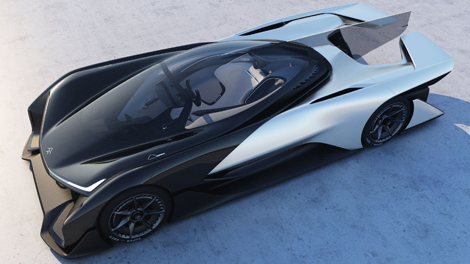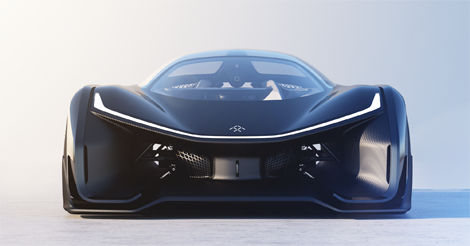
The all electric Faraday Future concept car was one of the big stories from CES 2016
The Faraday Future concept car grabbed headlines at the 2016 CES show, with the company’s ability to design, simulate, and prepare for production coming from a new deal with Dassault Systèmes.
In the car’s development, the electric-car company deployed two industry solutions from the company: Target Zero Defect – an integrated, open development platform, with capabilities to minimise defects and manage complexity – and Smart Safe & Connected – for electrical systems definition and performance validation, and embedded electronic architecture.
“We are taking a user-centric, technology-first approach to vehicle design with the ultimate aim of connecting the automotive experience to the rest of our customers’ life,” said Nick Sampson, senior VP, Product R&D, Faraday Future.

The design and engineering team are using two new industry solutions from Dassault Systèmes to reduce faults and increase electrical design capabilities
“Dassault Systèmes’ focus on customer experience and its unmatched technologies will enable us to meet our aggressive schedule to deliver the most advanced electric vehicles into the market.”
Dassault states that it sees a fundamental shift now occurring in the relationship between people and cars, with a statement reading: ‘This emerging generation of cars requires manufacturers to integrate traditional automotive design disciplines with internet-connectivity, alternative power-sources, and autonomous driving technologies.’
In addition to helping Faraday Future turn its concept car into reality, the 3DExperience platform will also be utilised in Faraday Future’s forthcoming manufacturing facility in North Las Vegas.






